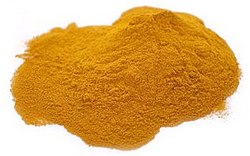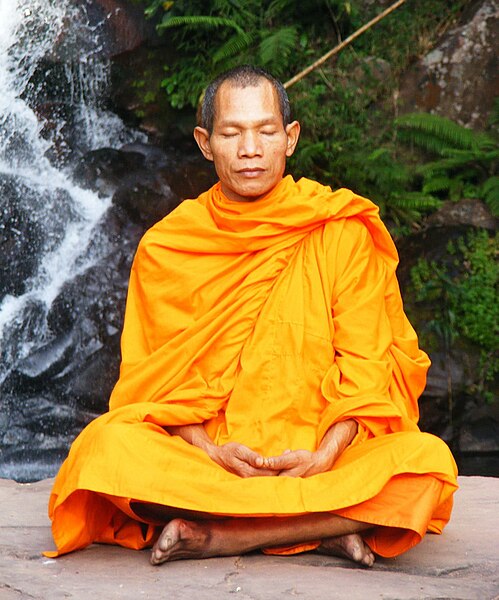
doesn't grow round here in England (it needs tropical heat and lots of rain. Not that the rain is a problem) but I keep powdered turmeric rhizomes (they're underground stems) in my spice box.

Ground turmeric is one of the main things that give a curry its colour, so it's quite easy to spot.
Even if you don't eat curry, then you know the yellow colour of mustard? Well, that's probably turmeric, too (mustard yellow naturally fades quite quickly). You can also find turmeric in ice cream, orange juice, cheese, margarine and even, in winter, butter.
Have you seen the saffron robes of Buddhist or Hindu monks?

This monk is from Thailand.
Yes, they're probably dyed with turmeric as it's many times cheaper than saffron.
Turmeric is associated with the sun and happiness, and so it's a feature of many religious ceremonies and celebrations. In Tamil Nadu and Andhra Pradesh a necklace made with a dried turmeric rhizome even acts as the equivalent of a wedding ring.
Turmeric is recommended for clearing up spots (though you would surely end up covered in yellow blotches) and is claimed as a cure for diabetes and Alzheimer's Disease.
Good stuff, then?
Well, the people who gave it its name certainly seem to have thought so.
Spot the Frippet: turmeric. People are still arguing about the origin of this word, but the consensus seems to be that it comes from the Old French terre merite, from the Latin terra merita, meritorious earth.
No comments:
Post a Comment
All comments are very welcome, but please make them suitable for The Word Den's family audience.